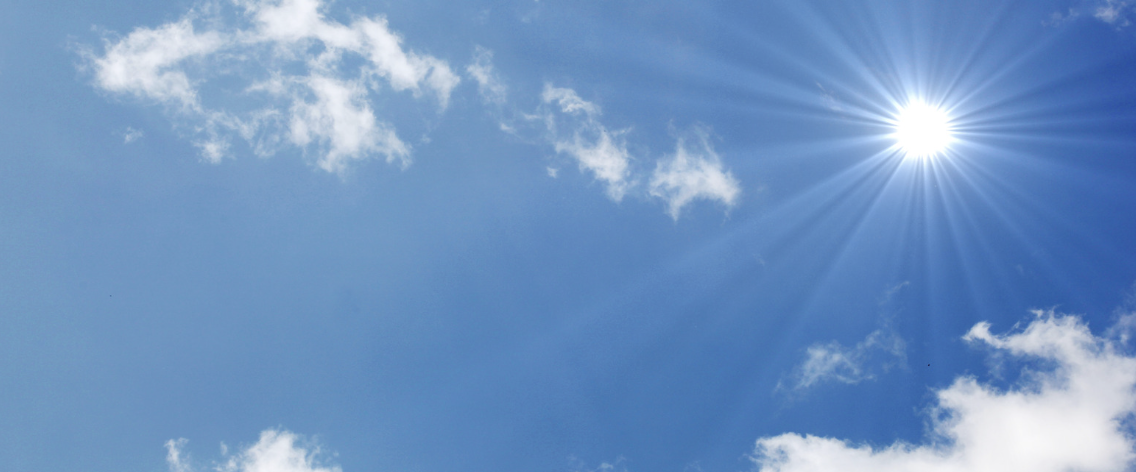What is UV Radiation?
- Posted on
- By Karole

Ultraviolet (UV) radiation is a form of electromagnetic radiation that comes from the sun. It is not visible to the human eye because its wavelengths are shorter than those of visible light.
UV radiation is divided into three main categories: UVA, UVB, and UVC, each with different characteristics.
UVA Radiation
UVA radiation is a form of electromagnetic radiation that comes from the sun. It is part of the broad spectrum of sunlight along with UVB and UVC radiation. UVA radiation has longer wavelengths and is less energetic than UVB and UVC radiation.
UVA radiation can penetrate deep into the skin and can even pass through glass. It is present year-round, regardless of the season. While UVA radiation causes less immediate damage to the skin compared to UVB radiation, prolonged exposure can lead to premature aging, wrinkles, pigmentation issues, and contribute to the risk of skin cancer.
It is important to protect yourself from UVA radiation by using broad-spectrum sunscreen, wearing clothing that covers your skin, and wearing sunglasses that block UVA rays.
UVB Radiation
UVB radiation is a form of electromagnetic radiation that comes from the sun. It is part of the broad spectrum of sunlight along with UVA and UVC radiation. UVB radiation has shorter wavelengths and is slightly more energetic than UVA radiation.
UVB radiation is strongest between 10 a.m. and 4 p.m., especially during the summer months. It has less penetrating power than UVA radiation and does not penetrate as deeply into the skin. UVB radiation is the primary cause of sunburn and plays a significant role in the development of skin cancer.
While UVB radiation does not penetrate as deeply as UVA radiation, it can damage the upper layers of the skin and alter the DNA in skin cells. This can result in sunburn, redness, skin rashes, and, in severe cases, blistering.
UVC Radiation
UVC radiation is also a form of electromagnetic radiation, but unlike UVA and UVB radiation, UVC radiation typically does not reach the Earth's surface. UVC radiation is mainly absorbed by the ozone layer and the atmosphere, blocking most of it before it reaches the ground.
UVC radiation has the shortest wavelengths and is the most energetic of the three types of ultraviolet radiation. It is often used in laboratories and medical settings for disinfection and sterilization purposes due to its ability to kill or inactivate microorganisms such as bacteria and viruses.
Sunscreen and UV Radiation
Sunscreen plays an essential role in protecting our skin from harmful UV radiation. There are two important factors to consider when choosing an effective sunscreen: the sun protection factor (SPF) and the protection against UVA radiation.
The sun protection factor (SPF) measures the level of protection a sunscreen provides against UVB radiation. UVB radiation is responsible for sunburn and plays a significant role in the development of skin cancer. The SPF value on a sunscreen indicates how long you can stay in the sun without getting burned compared to unprotected skin. For example, a sunscreen with SPF 30 means you can stay in the sun 30 times longer without burning than if you were not wearing sunscreen. It's important to note that higher SPF values do not always provide proportionally higher protection. For instance, an SPF of 30 blocks about 97% of UVB rays, while an SPF of 50 blocks about 98%.
In addition to SPF, it is also important to check if a sunscreen provides protection against UVA radiation. UVA radiation is less intense than UVB radiation, but it penetrates deeper into the skin and is present year-round, even on cloudy days. Prolonged exposure to UVA radiation can lead to premature skin aging and contribute to the risk of skin cancer. To determine if a sunscreen offers UVA protection, you can look for labels or symbols such as the UVA logo (a circle with "UVA" inside) or the term "broad-spectrum." Broad-spectrum means that the sunscreen provides protection against both UVB and UVA radiation.
It is important to apply sunscreen regularly, especially after swimming, sweating, or towel-drying. Additionally, taking other protective measures such as wearing protective clothing, avoiding the sun during peak hours, and wearing sunglasses (or a hat) to protect the eyes are essential.

